1/19
Can plant-based products slow the impacts of climate change?
The impacts of climate change can be felt at almost every level in nature. From rising sea levels to changes in weather patterns and shrinking biodiversity, climate change is altering the way that we live and the global systems that support us. Fortunately, there are many actions that both consumers and companies can do now to help reduce the climate impact of the consumer economy now and in the future. Investments in research for plant-based innovations, manufacturing more circular products, and advocating for improvements in our waste infrastructure to support products derived from renewable resources are critical, practical solutions for a greener future.
Before getting into plant-based products’ role in slowing these devastating impacts, it’s important to understand the causes behind climate change.
What causes climate change?
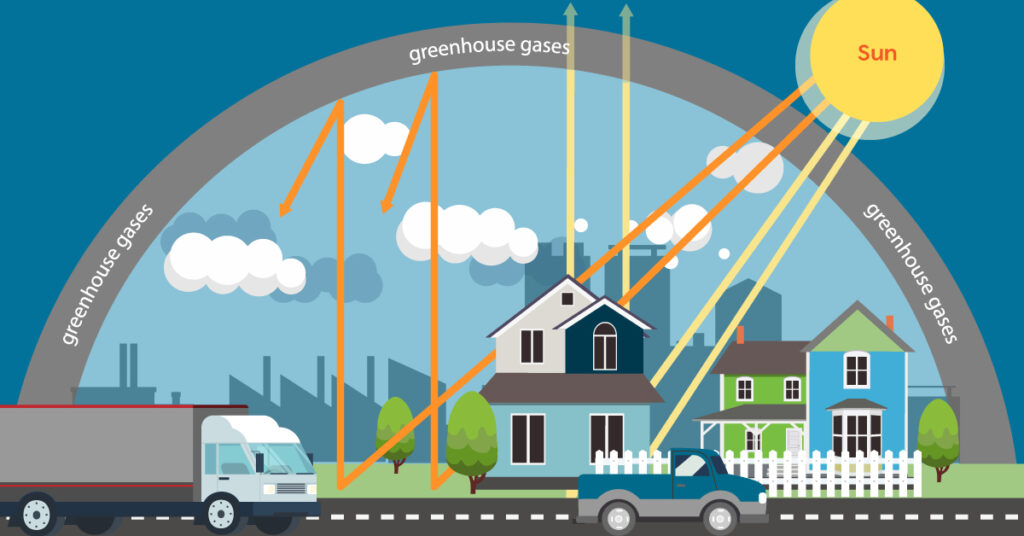
The biggest contributing factor is rising greenhouse gas (GHG) emissions caused by human activities. GHGs are a group of gases that cause more heat to be trapped in the atmosphere than the amount of heat that leaves. These include carbon dioxide (CO2), methane, nitrous oxide, and fluorinated gases. Increasing concentrations of these gases in the atmosphere cause warming, leading to a cascade of catastrophic effects on earth’s physical, chemical, and biological systems. The increase of GHG into our atmosphere has been primarily caused by human activity, meaning these emissions are considered anthropogenic. To help reduce the numerous negative effects from excess anthropogenic emissions of these gases, the scientific community, environmental experts, and individuals across the world are advocating for a “net-zero” future – one that achieves a balance between emissions produced and emissions taken out of the atmosphere.
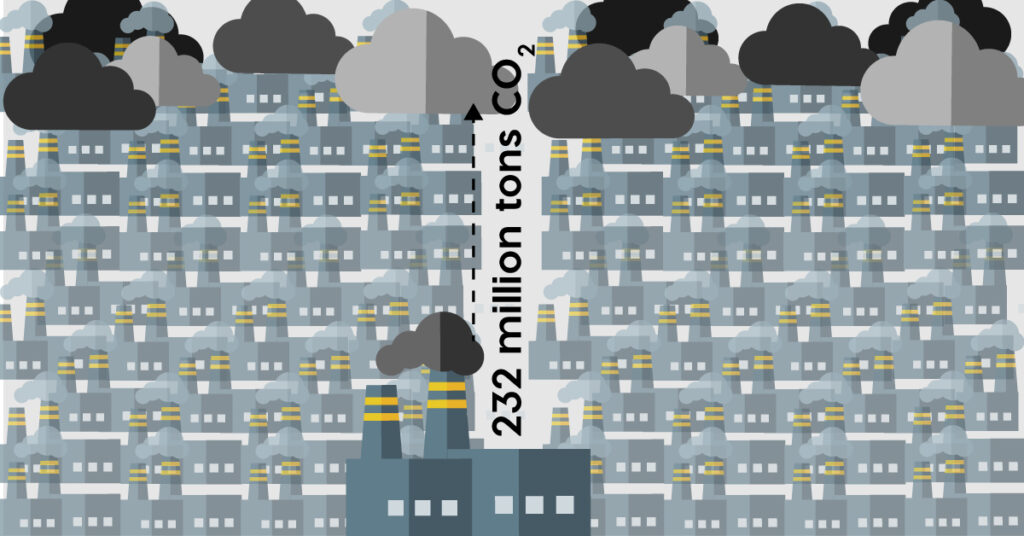
Many of these emissions are caused by the utilization of fossil fuels like natural gas, petroleum, and coal. Petroleum is the main building block used in the production of traditional plastics and many other materials. Unfortunately, creating the plastics that we use in our day-to-day life is one of the largest sources of GHG emissions. In fact, the U.S. plastics industry is responsible for at least 232 million tons of CO2 gas emissions per year. This amount is equivalent to the average annual emissions from 116 average-sized (500-megawatt) coal-fired power plants in 2020.
Landfills are also a significant source of GHG emissions, particularly methane, with an annual emission impact equivalent to over 21 million passenger vehicles being driven for one year. Many plastic products are not recycled properly or are designed to be single-use, adding their volume as well as the food and other organic matter that often accompanies them to landfills directly.
How can plant-based products make a difference?
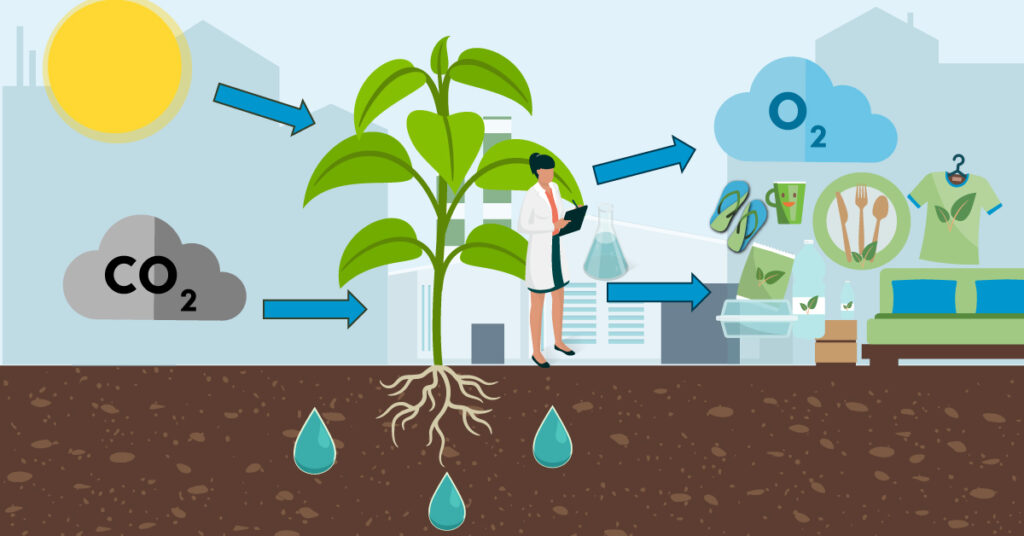
The increased use of plant-based products has a large role to play in reaching a “net-zero” future. Many plant-based, renewable resources can be used to create identical replacements to traditional, petroleum-based plastics. Providing additional environmental benefits, the feedstocks used to create plant-based products take carbon dioxide from the atmosphere during their growing phase. Instead of trapping heat in our planet’s atmosphere, the carbon is used as a building block during the feedstocks’ production, and some is sequestered in the plant-based products themselves during their useful life.
A recent report from the USDA estimated that plant-based products displace about 9.4 million barrels of oil a year and have the potential to reduce GHG emissions by an estimated 12.7 million metric tons of CO2 equivalents per year. Investing in the greater use and adoption of plant-based products provides a better way to reach climate goals – one that isn’t reliant on fossil fuels.
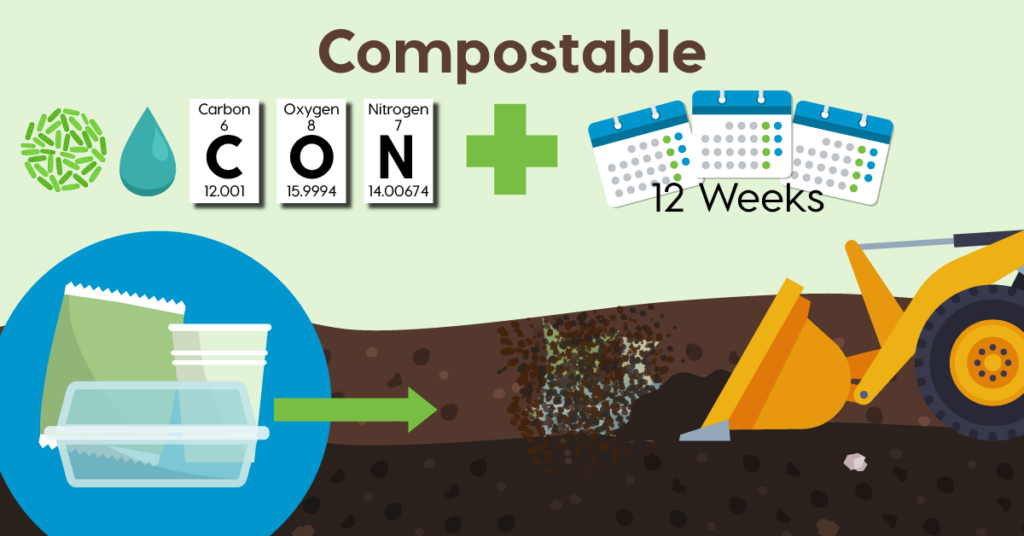
Plant-based products, many of which are compostable, also present climate solutions with their sustainable end-of-life options. Compostable products, especially when used in food packaging or food service applications, can support the conversion of food scraps to compost at composting facilities. In 2015, 40 million tons of food waste were sent to landfills, becoming a significant contributor to total GHG emissions. Compostable products would help divert this waste to compost facilities instead. Plus, the compost they create is a valuable soil amendment, improving soil health and its critical role as a carbon sink. Currently, our country’s waste management system is not set up to take full advantage of the environmental benefits of compostable products. Supporting infrastructure legislation like the COMPOST Act is a way to help realize their potential.
Realizing A Circular Economy
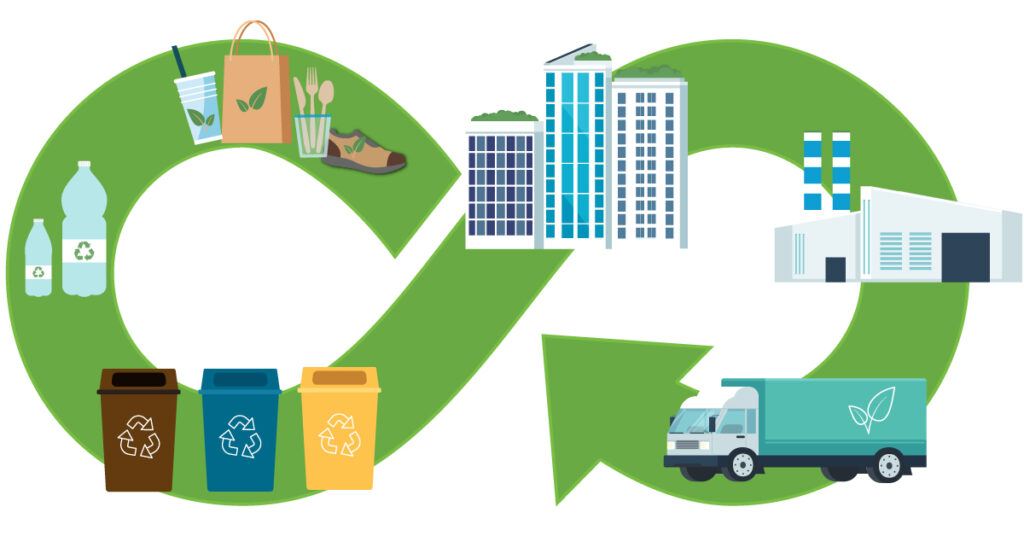
Expanding the use of and infrastructure that supports plant-based products is necessary to realizing a circular economy – one where waste is eliminated and the life of products and materials is extended. PBPC continues to advocate for solutions that get us closer to achieving a circular economy. By working with policymakers and leaders in the sustainability community, we can take an important step towards slowing the impacts of climate change through the use and adoption of plant-based products.
